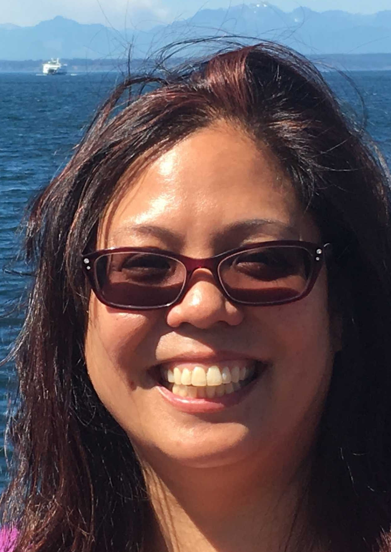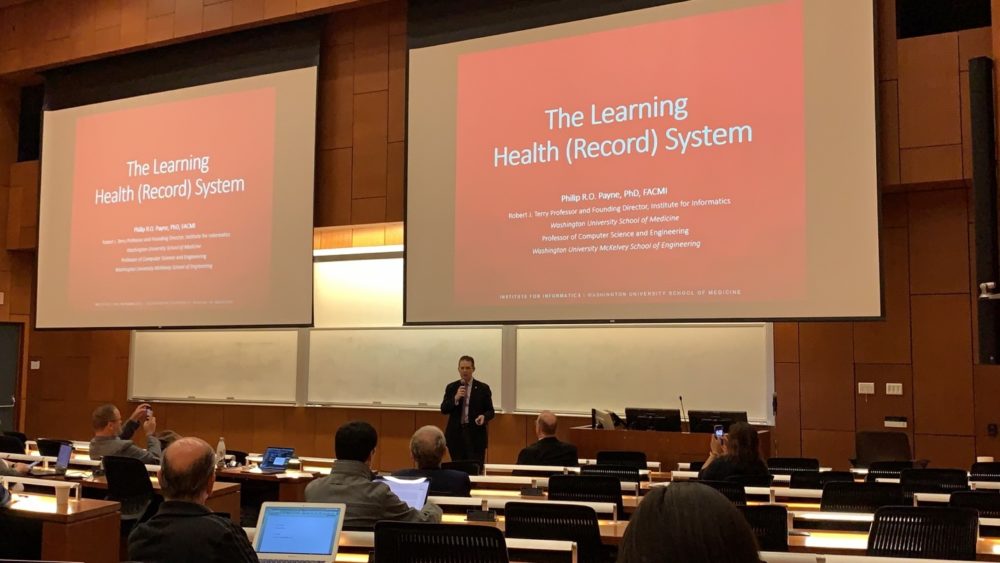By Marissa Ventura. Think of it: Every time a physician, nurse, or other clinician sees patients and intervenes, the data collected are turned into opportunities to improve care for all patients, now and in the future. That’s the “Learning Health (Record) System” – both a key theme and the title of the keynote address at the 2019 UC Health Data Day.
The Institute of Medicine has defined the learning healthcare system as one in which “science, informatics, incentives, and culture are aligned for continuous improvement and innovation, with best practices seamlessly embedded in the delivery process and new knowledge captured as an integral by-product of the delivery experience.”
“While the electronic health record (EHR) system does not yet fully support the learning health care system that we dream of, it is the body of work that we need to undertake,” said keynote speaker Philip R.O. Payne, Ph.D., director of the Institute of Informatics, Washington University School of Medicine (see photo). “We need to instrument care delivery, laboratory, and everyday environments so that we can generate high-quality phenotypes that benefit patients.”
Nearly 300 scientists, students and staff interested in using health data to unleash the next generation of discoveries in biomedical and health care delivery attended this second annual event, held June 14. Another 120 plus participated via live streaming on YouTube.
“Our annual Health Data Day is focused on breaking down barriers so we can better use clinical data for research and improving health care,” said Mike Hogarth, M.D., who spearheaded the meeting and is UC San Diego Health’s clinical research information officer.
The one-day event brought together Payne and speakers from four UC Health campuses – San Diego, San Francisco, Irvine, and Davis – at UC San Diego’s Medical Education and Telemedicine building.
“It was a day to share the tools available to researchers across the University of California and demonstrate practical ways to use these data resources to improve patient care, facilitate research, and improve our educational resources,” said Andrew Greaves, enterprise cloud architect, Information Services, and co-planner of the event.
Among the tools discussed were:
- Epic’s SlicerDicer for insights on population health and quality improvement
- The UCSF Information Commons to access de-identified patient information in a HIPAA-compliant way
- Blockchain as another way to share health care data
- The new UCSD Health Data Cloud designed to provide researchers with easier access to de-identified patient data
Practical applications of these tools were presented in several case studies. This included presentations on how clinical data has been used to:
- Predict sepsis or COPD exacerbation
- Determine the uptake of advanced-care planning for older adults with serious illness
- Create predictive modeling in glaucoma
“I continue to be impressed by the power of the University of California’s academic medical centers and our external partners to be collaborative in efforts to bring research and clinical applications together,” said UC San Diego Health Chief Information Officer Christopher Longhurst. “Opening these avenues of discussion benefits our health systems, providers and, most importantly, our patients.”
 Marissa J. Ventura is communications lead, Information Services and Quality, UC San Diego Health.
Marissa J. Ventura is communications lead, Information Services and Quality, UC San Diego Health.

